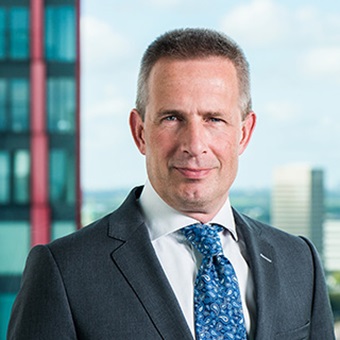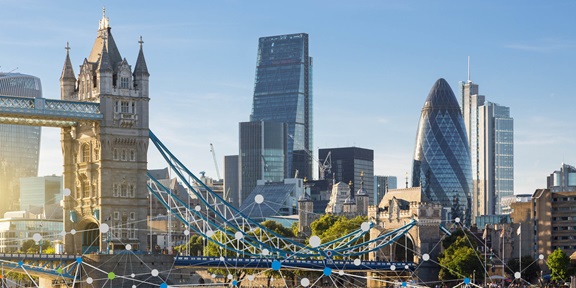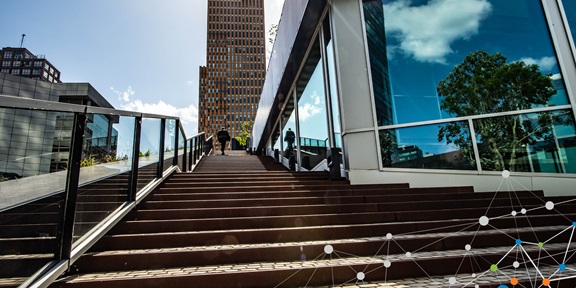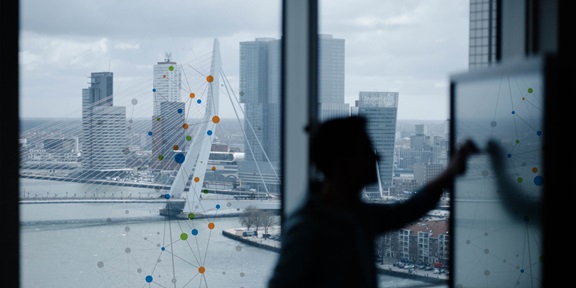
In a few days COP26, the annual United Nations climate change conference, will begin. Prime ministers, presidents, and their delegations are being flown in to participate. Many international business and investment representatives are expected to be in attendance. Together with civil society organizations, they will make their voices heard.
After a summer of severe floods and almost impossible to extinguish forest fires all over the world, we expect a real sense of urgency to take measures to prevent global warming from exceeding 1.5 degrees Celsius. Participating countries and businesses will not only have to fulfill their promises of the Paris Climate Agreement, but they will also have to go the extra mile to catch up on progress lost in order to reach 1.5 degrees. In 2015, the Paris commitments were already falling short of staying below 2 degrees Celsius.
Governments, businesses, and citizens have known for a long time that the climate is changing, but we have yet to sufficiently accelerate the transition to a sustainable world. Expectations for COP26 are high but at the same time not many expect substantial changes – taking LinkedIn opinion polls as the norm.
Perhaps we should take a cue from the American psychologist Abraham Maslow who wrote: “You must want to be first-class …meaning the best, the very best you are capable of becoming. If you deliberately plan to be less than you are capable of being, then I warn you that you’ll be deeply unhappy for the rest of your life. You will be evading your own capacities, your own possibilities.”1 If countries and business strive to be first class in financial performance – economic growth, profits or turnover – why can’t they be first class in keeping climate change under control? We know the young people of today and their children will be very unhappy if we don’t.
COP stands for Conference of the Parties, where the parties are all countries that have signed the UN Framework Convention of Climate Change (UNFCCC). A COP is held in a different country each year. The first took place in Berlin in 1995, whilst this year’s conference will take place from October 31 to November 12 in Glasgow— after a year’s delay due to COVID.
The success of COP26 depends on the so-called Nationally Determined Contributions (NDCs). These are the commitments of the participating countries to ensure that they do their part in reducing CO2 emissions. All NDCs added together should ensure that global warming is limited to 1.5 degrees Celsius.
Why 1.5 degrees and why are businesses and investors so concerned about it? The earth is a closed ecosystem, so if it gets too warm all kinds of natural processes will change. This is the reason why so many climate scientists are concerned about a 2-degree warming. The International Panel on Climate Change (IPCC), a UN-appointed group of scientists tasked with annually monitoring and reporting on the state of climate research, assumes that if the earth warms to 2 degrees Celsius, there will be almost no coral reefs left, 17% less drinking water will be available, and sea levels will rise on average 50 cm— resulting in the forced relocation of 10 million people. In addition, heat waves will last longer and rainfall will become more extreme. Summer of 2021 showed but a glimpse of how such extreme weather may end up all over the world.
The challenge at hand is not only the unpredictability of how climate change will unfold, but also the uncertainty of how governments, businesses, and citizens will respond to all these changes—including the damage to economic growth. Increasingly, institutional investors will have to make investment decisions without being able to rely on complete information instead rely on uncertain scenarios of the future. They will have to anticipate how the global economy will respond to the effects of climate change and what that means for investment portfolios.
At Ortec Finance we provide several transition pathways: 1) everyone will do their best and the transition to a climate-resilient economy will proceed in an orderly manner and we will remain below 2 degrees of warming in 2100, 2) The transition is chaotic, but we are keeping it below 2 degrees in 2100, and 3) The transition is slow or completely failing and we are aiming for a warming of 4 degrees in less than 80 years.
Hopefully, COP26 will deliver commitments from business and governments that will keep us within scenarios 1 or 2. We will know in 2 weeks whether we can be optimistic. Whatever the outcome, the financial consequences of climate change will be challenging for all of us, not least for investors.
[1] In The Farther Reaches of Human Nature, published in 1971.
Learn more about our Climate Scenario Analysis Solution - ClimateMAPS
Contact











